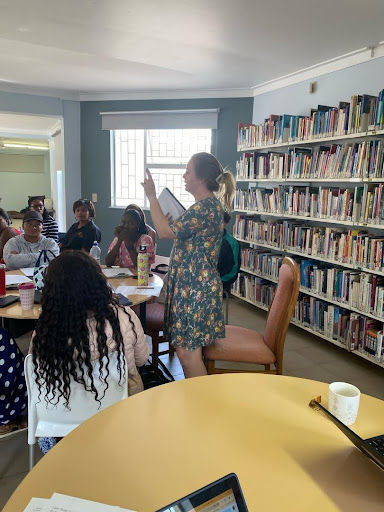Multiple Intelligences - why do we need to know about these?
- Windhoek International School
- Nov 3, 2023
- 2 min read
We tend to focus primarily on one intelligence when we speak about learning, but research increasingly directs our attention to the theory of multiple intelligences and how they impact learning.

Expecting children to learn in one way only and all children to learn in the same way is an outdated approach to learning. Howard Gardner’s 8 Intelligences has influenced current thinking and approaches to teaching and learning in a big way. Children do not only learn one-dimensional. Learning happens in many different ways and is supported by intelligence that utilise different ways of processing information. According to Gardner, the following intelligences are present in all humans and represent different intellectual abilities that are present in various levels of aptitude in all humans.
Verbal-linguistic intelligence refers to an individual's ability to analyse information and produce work that involves oral and written language, such as speeches, books, and emails.
Logical-mathematical intelligence describes the ability to develop equations and proofs, make calculations, and solve abstract problems.
Visual-spatial intelligence allows people to comprehend maps and other types of graphical information.
Musical intelligence enables individuals to produce and make meaning of different types of sound.
Naturalistic intelligence refers to the ability to identify and distinguish among different types of plants, animals, and weather formations found in the natural world.
Bodily-kinesthetic intelligence entails using one's own body to create products or solve problems.
Interpersonal intelligence reflects an ability to recognize and understand other people's moods, desires, motivations, and intentions.
Intrapersonal intelligence refers to people's ability to recognize and assess those same characteristics within themselves.
For that reason, we as educators need to provide students with opportunities to access content. If we give them multiple ways to demonstrate their knowledge and skills, motivation and engagement increase and the learning process can become so much more meaningful. At WIS and with the approach we take with the International Baccalaureate programmes we offer, we try to make sure we know our kids and their strengths and needs. We try to have conversations with families/parents to ensure that the support from home is complementing what we do here in school.
WIS has quite a different approach to the traditional approach that many of us experienced in our education and also a different approach to other schools in the country. It is therefore important that we - the school and the parents - work together and talk to each other to ensure we approach learning in the same way - at school and at home.
Another interesting article on Multiple Intelligences Multiple Intelligences Theory: Widely Used, Yet Misunderstood can shed some further light on this important topic.
Working with these different intelligences and supporting them at home and in school will give young people the opportunity to thrive and succeed in their academic as well as social environments.
Maggie Reiff
Secondary Principal








Comments